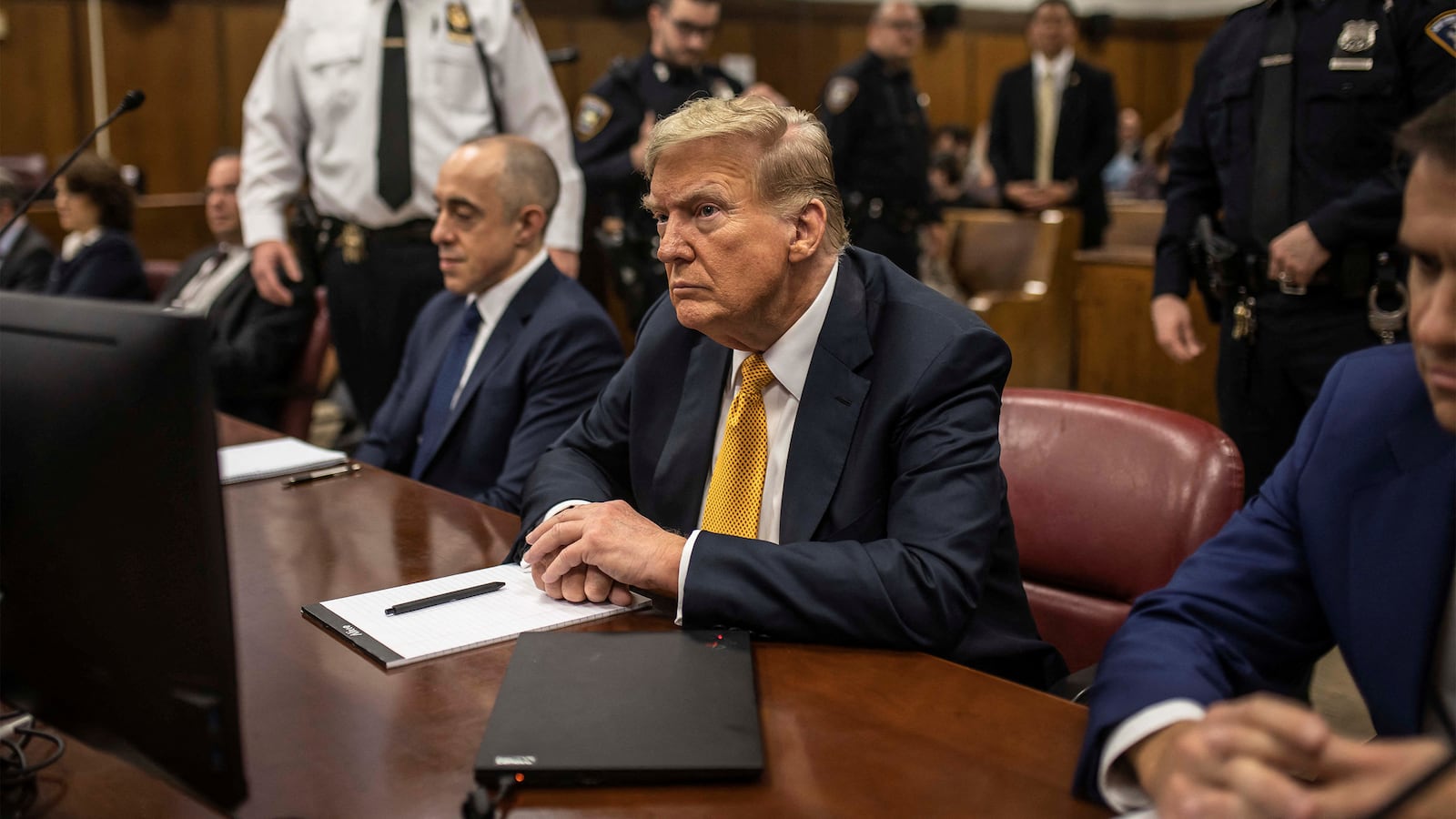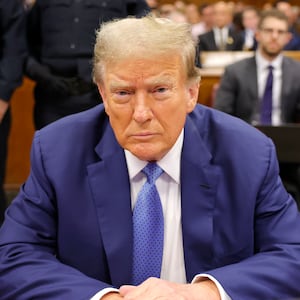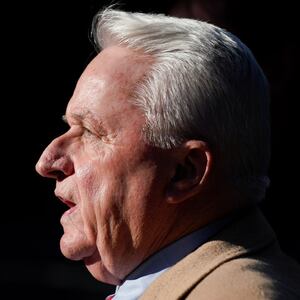Donald Trump’s defense team rested their case on Tuesday after putting on what The New York Times described as a “minimal defense.”
The Times likely did not intend any disparagement of Trump’s defense with its wording. The article describes how Trump’s team had put on only two witnesses compared to the prosecution’s twenty–hardly an uncommon ratio given that the prosecution bears the burden of proving all aspects of the case while the defense need not put on any evidence at all. The truth is Trump’s defense wasn’t minimal. It was terrible.
After the prosecution laid out its case, Trump’s lawyers could have just relied on what they had done in cross-examination and woven that into their closing argument. Instead, they chose to put on two witnesses: a paralegal at Trump lead attorney Todd Blanche’s firm and Robert Costello, a former federal prosecutor who has represented many notable clients, including Rudy Giuliani and former Yankees owner George Steinbrenner, and who at one point advised Michael Cohen.
The paralegal, Danny Sitko, was put on the stand essentially as a records custodian to help admit some phone records. Costello, fresh off his visit with the GOP-led House Select Subcommittee on the Weaponization of the Federal Government, was put on to attack Cohen, Trump’s former fixer and a key witness for the prosecution. The paralegal did fine. Costello, however, was an unmitigated disaster for the Trump defense team.
The idea seemed to be for Costello to build off his appearance in Congress last week in which he commented about Cohen’s testimony in Trump’s trial, saying: “Virtually every statement he made about me was another lie.”
According to Politico, Costello told CBS at the time of the congressional hearing that he had a brief conversation with Trump’s attorney, Todd Blanche, but that their discussion “was not witness prep.”
Costello was referencing the alleged lack of preparation for his congressional testimony, but it could just as well have applied to his trial testimony.
Presumably, Costello was meant to sink Cohen’s credibility on Tuesday by piling onto the hyperbole in the media about how Cohen was the weak link in the prosecution’s case because of his convictions for tax fraud, campaign finance violations, and lies to Congress.
However, Cohen—who certainly does carry baggage that can and will be used by Trump’s defense team—weathered three days of cross-examination by Blanche that was described by law forum Just Security as “at times bumbling and at times bruising.” Cohen maintained his cool and perhaps even managed to present himself to the jury as a man who has been dishonest in the past, but is telling the truth about his dishonesty. Notably, Cohen never appeared to draw any ire from Judge Juan Merchan, the trial judge.
In contrast, Costello, displayed remarkable arrogance towards Judge Merchan, exclaiming “Jeez!” at the judge’s rulings on Monday, rolling his eyes, and engaging in a stare-down contest with the judge when Merchan reprimanded him. Costello, perhaps, was performing for Trump, but it was an extraordinarily destructive performance in part because it elicited disapproval from the judge at least partially in the presence of the jury.
In fact, Costello managed to anger Merchan so much that Merchan cleared the courtroom to fully dress down Costello, telling him that his behavior was “contemptuous” and threatening to remove him from the witness stand and/or strike his testimony altogether.
Also in contrast to Cohen was Costello’s performance under cross-examination by prosecutor Susan Hoffinger, who put on a masterclass of dissecting Costello. As MSNBC’s Katie Phang observed: “Costello being difficult with Hoffinger just makes him more dislikable to the jury. He is being impeached by exhibit after exhibit.”
If Costello’s mission as a witness was to undercut Cohen’s credibility, he failed. What he did do was undercut his own credibility and likely leave the jury with the overall impression that Trump’s legal team sought to implement a mob-style loyalty atmosphere to prevent Cohen from cooperating with the government. Ironically, Costello’s testimony coincided with comedian Joe Piscobo’s appearance in Trump’s court entourage, which fully completed the Wise Guys atmosphere.
It's worth remembering that while a defendant does not have to put on any case at all, once they do that evidence is fair game for the prosecution. A former prosecutor colleague of mine, Julie Grohovsky, used to very effectively remind juries of that in closing arguments in cases where the defense chose to put on a case. A former director of training, she would make the point that while the government fully bore the burden of proof throughout a case, that did not mean the jury could not consider the weaknesses of evidence put forth by the defense. Put simply, being presumed innocent does not give you a free pass to put forth lousy evidence and testimony.
If the New York jury returns a guilty verdict against Trump, then his legal team may rue their decision to put on a case at all. Legendary defense counsel Johnny Cochran, arguing that forensic evidence had been tainted in the O.J. Simpson case, used the phrase: “You get garbage in, you get garbage out.” Trump’s defense team might have done well to remember Cochran’s words in deciding whether to put on a case featuring Robert Costello.







